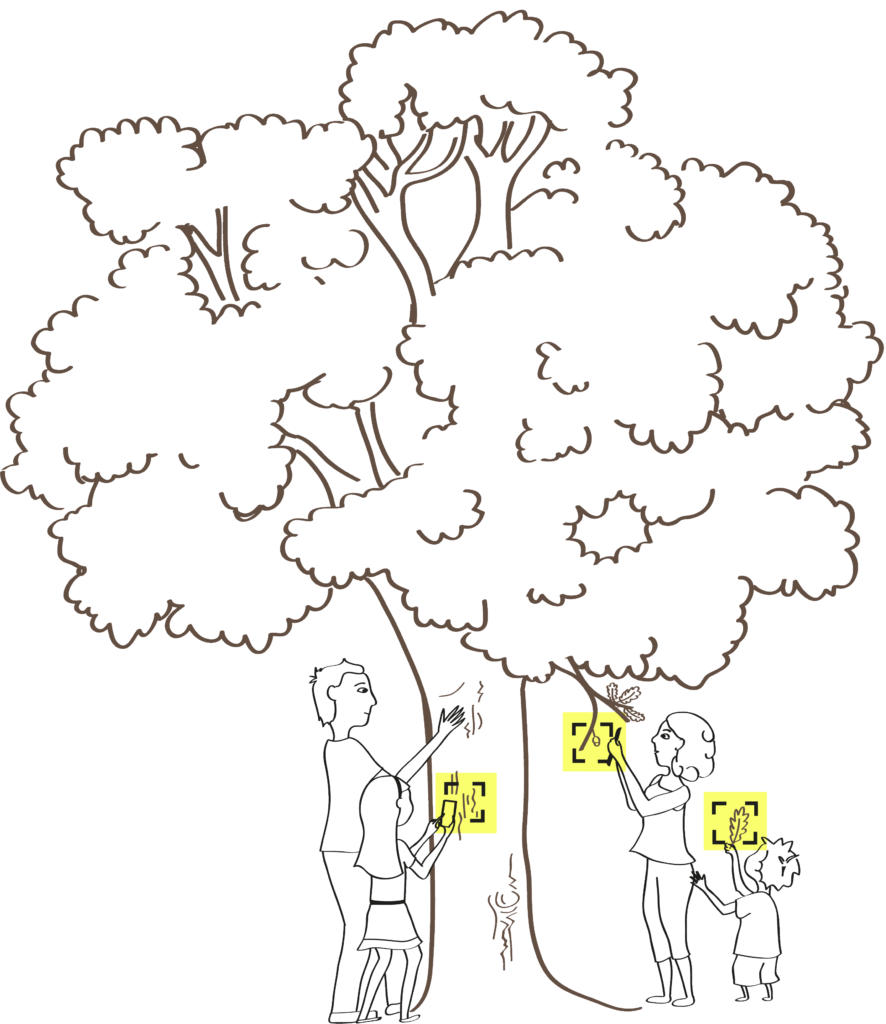Interactive, Fun and Educational Plant Recognition on Smartphones (ReVeRIES)
Date: 01/2016 - 09/2021
Funding: ANR
Call: Generic
Partners: liris (France), EVS (France), LISTIC (France), IRHS (France)URL: https://reveries-lium.univ-lemans.fr/

Date: 01/2016 - 09/2021
Funding: ANR
Call: Generic
Partners: liris (France), EVS (France), LISTIC (France), IRHS (France)URL: https://reveries-lium.univ-lemans.fr/
The urbanization of society has gradually separated men from the plant world. Indeed, most people no longer live in a natural environment and have forgotten the names of plants and trees and the potential uses that can be made of them. Still, generations of botanists have accumulated knowledge about plants and many people are interested in nature and aware that natural resources are a treasure we must preserve. However, it is undeniable that, for a majority of people, botany remains difficult to understand.

In the ReVeRIES project (French acronym that means “dreams” and that stands for Interactive, Fun and Educational Plant Recognition on Smartphones), we propose to use mobile technologies in order to help humans recognize plants that surround them. Indeed, the recent immergence of smart-phones, that offer a large variety of functionalities such as camera, GPS, accelerometer, including significant computing power and countless user interactions, allows thrusting knowledge directly into users’ pockets, via an ever growing number of applications.
The ReVeRIES project is the continuation of the ReVeS project, during which we developed an application prototype capable of recognizing species of trees and shrubs (taller than 1m20 and originating from France) by analyzing photos of their leaves. This prototype, called Folia, is free and available on App Store and Google Store. It should be noted that it has been downloaded by more than 10000 users in France but also from users in other parts of the world. The main idea behind this prototype, which makes it different from all the other tools available on the market, is the fact that it simulates the behavior of a botanist when trying to determine the plant’s species. Indeed, it shows the various steps that need to be followed so that users can learn how to recognize the discriminating elements themselves.
In the context of ReVeRIES, we propose to go much further by analyzing not only the plants’ leaves, but also their flowers, fruits and bark. This improvement opens new scientific challenges in the fields of image recognition and data fusion. Indeed, the previous recognition method, used for leaves, cannot be applied as such to other organs. With the help of botanist, specific methods for each of these new organs will therefore need to be developed. Users will also be able to choose one or several organs for the plant recognition, depending on their availability. This will therefore greatly increase the complexity of the data fusion process.
Moreover, we also intend on pursuing the educational aspect of the project by integrating a research lab specialized in Technology Enhanced Learning (TEL) Systems, advanced Human-Computer interactions and Serious Games. With this lab, we will design fun applications to help neophytes learn about plants. More precisely, we intend on designing treasure hunt activities based on plant recognition and that can be used while hiking botanical trails. We will also study the possibility of using game mechanics to motivate local inhabitants and amateur botanist to contribute to regional inventories of geolocated plants, thereby following the principals of open geographic data systems such as OpenStreet Map.
Because the research lead in the context of ReVeRIES is related to nature conservation, collective intelligence, citizen science and environmental games, we believe that it will have numerous purposes and applications.
